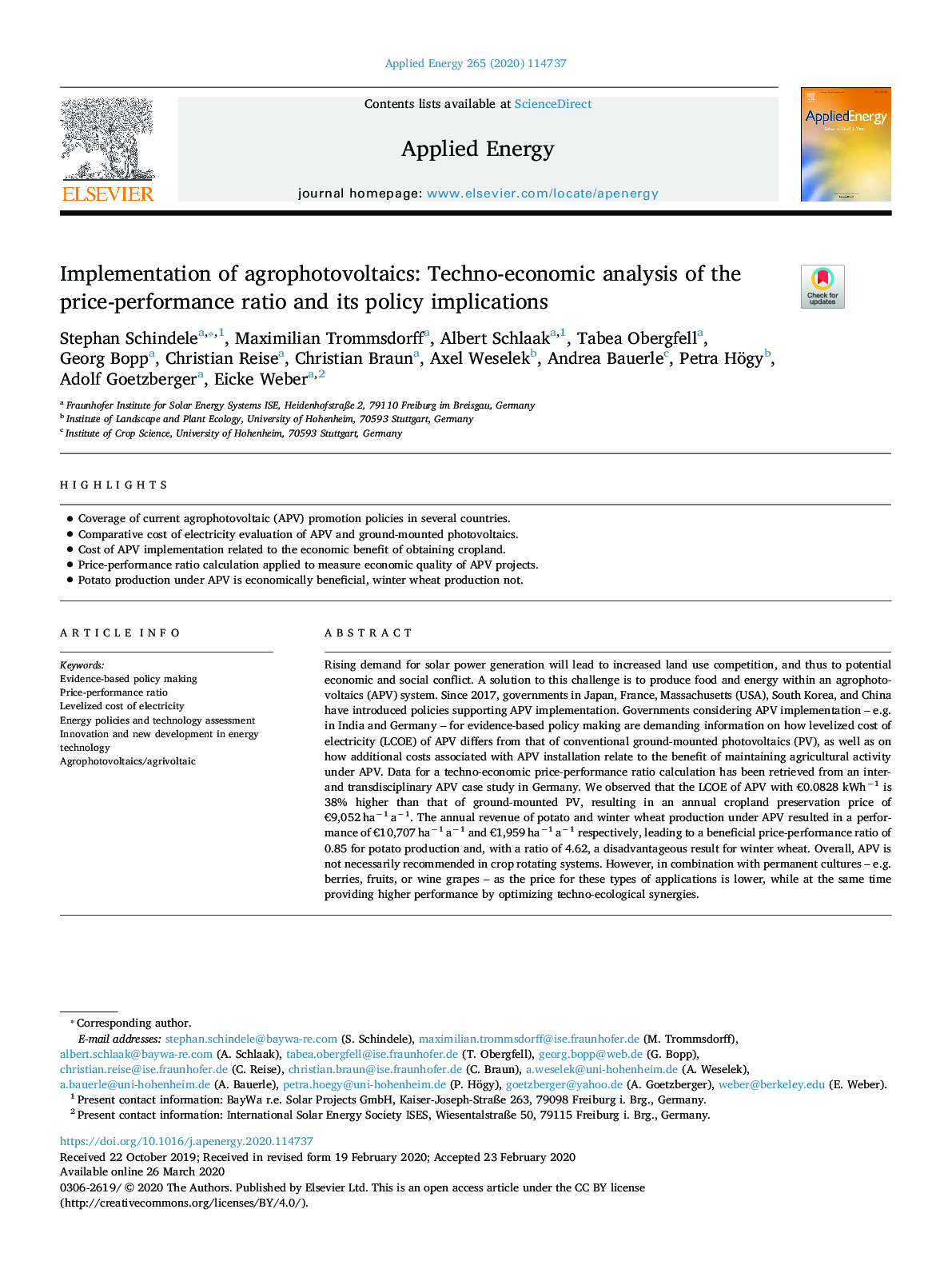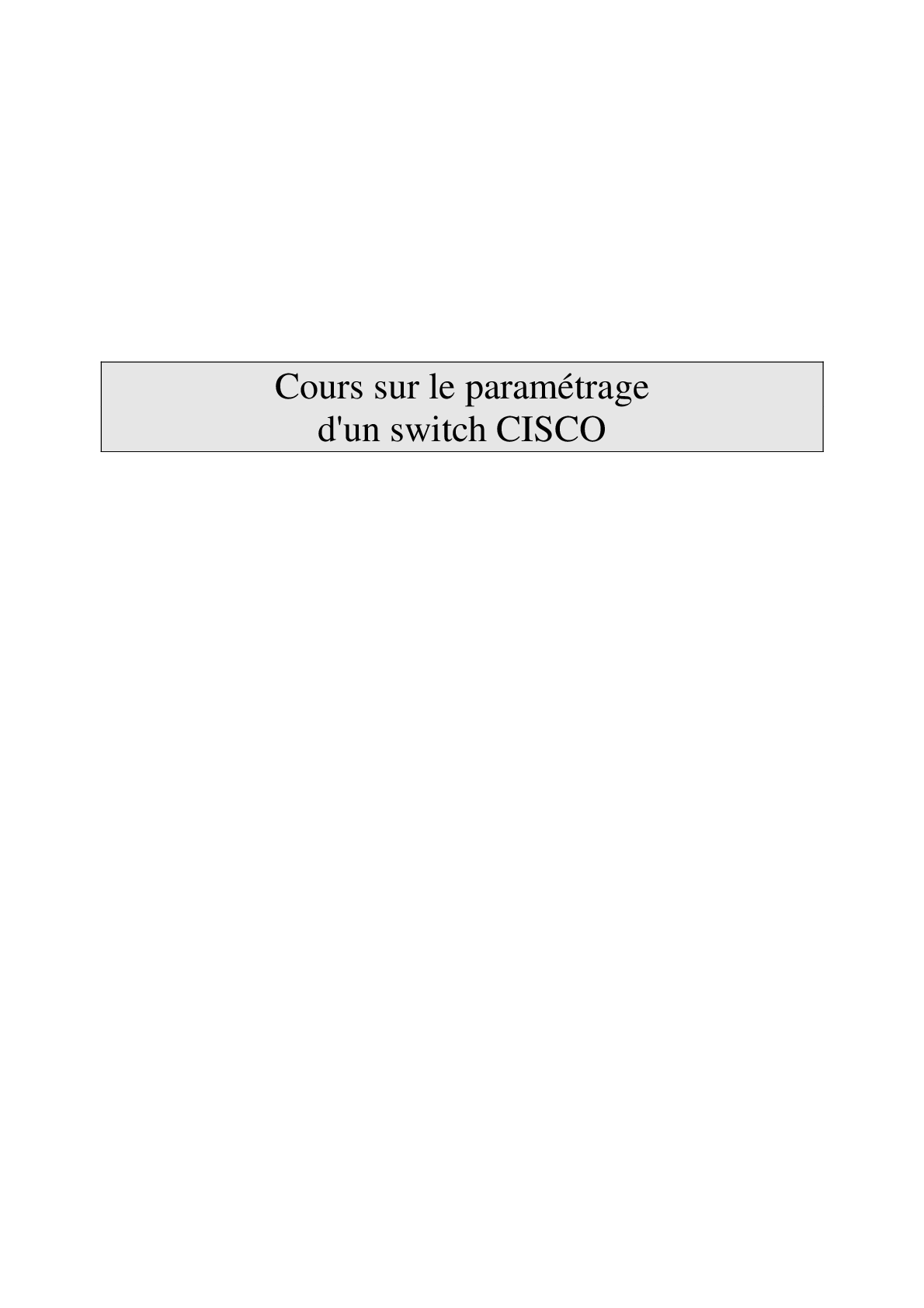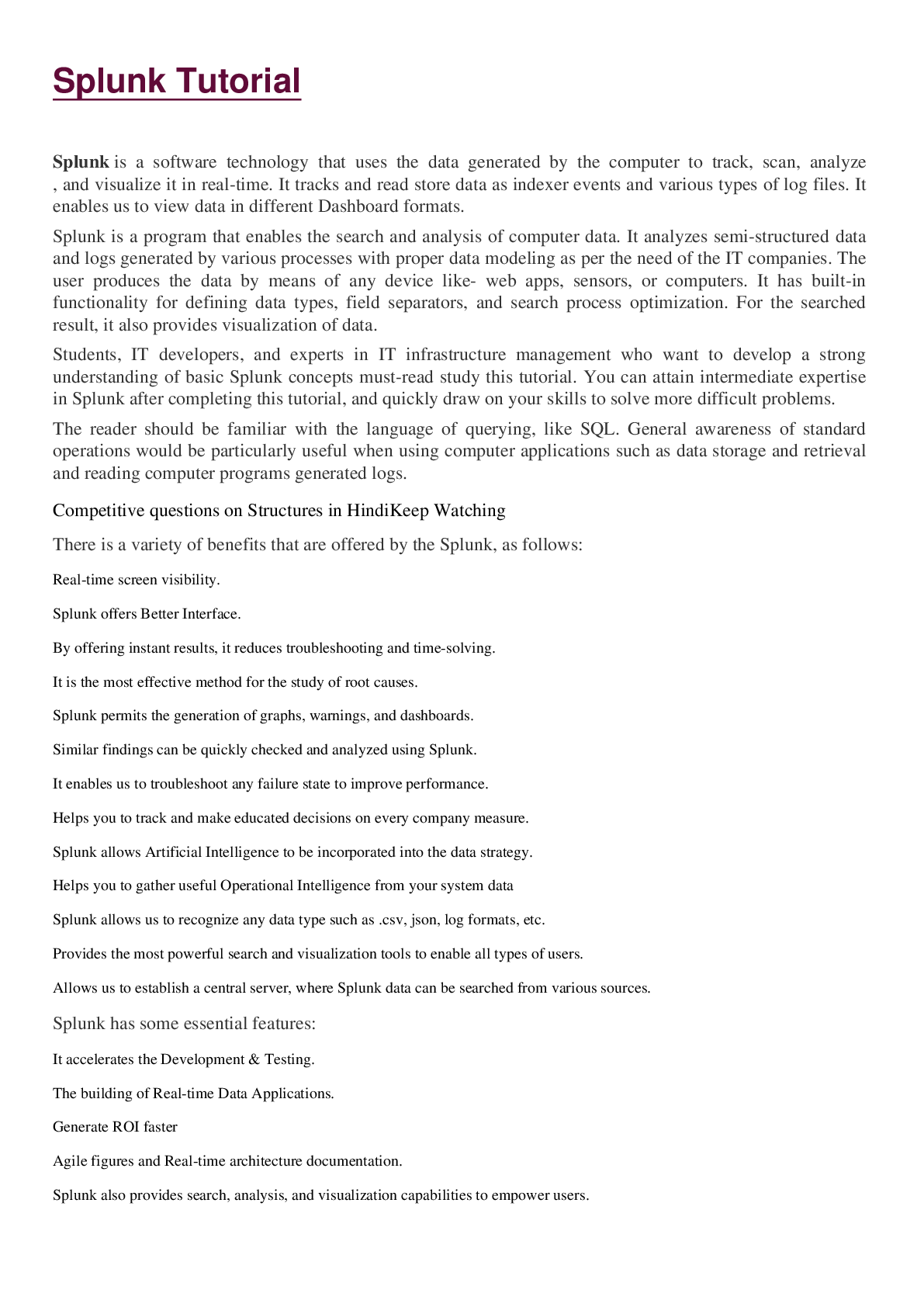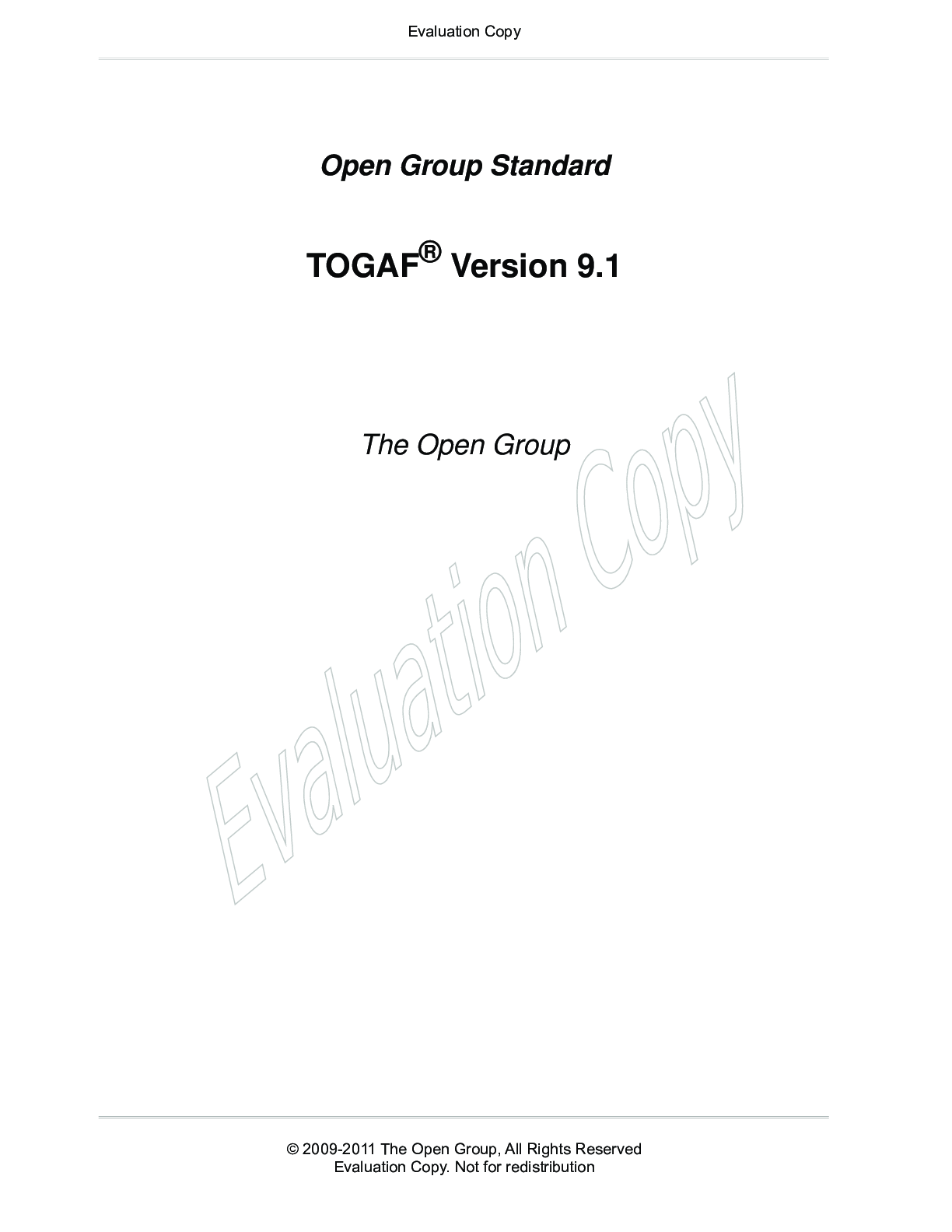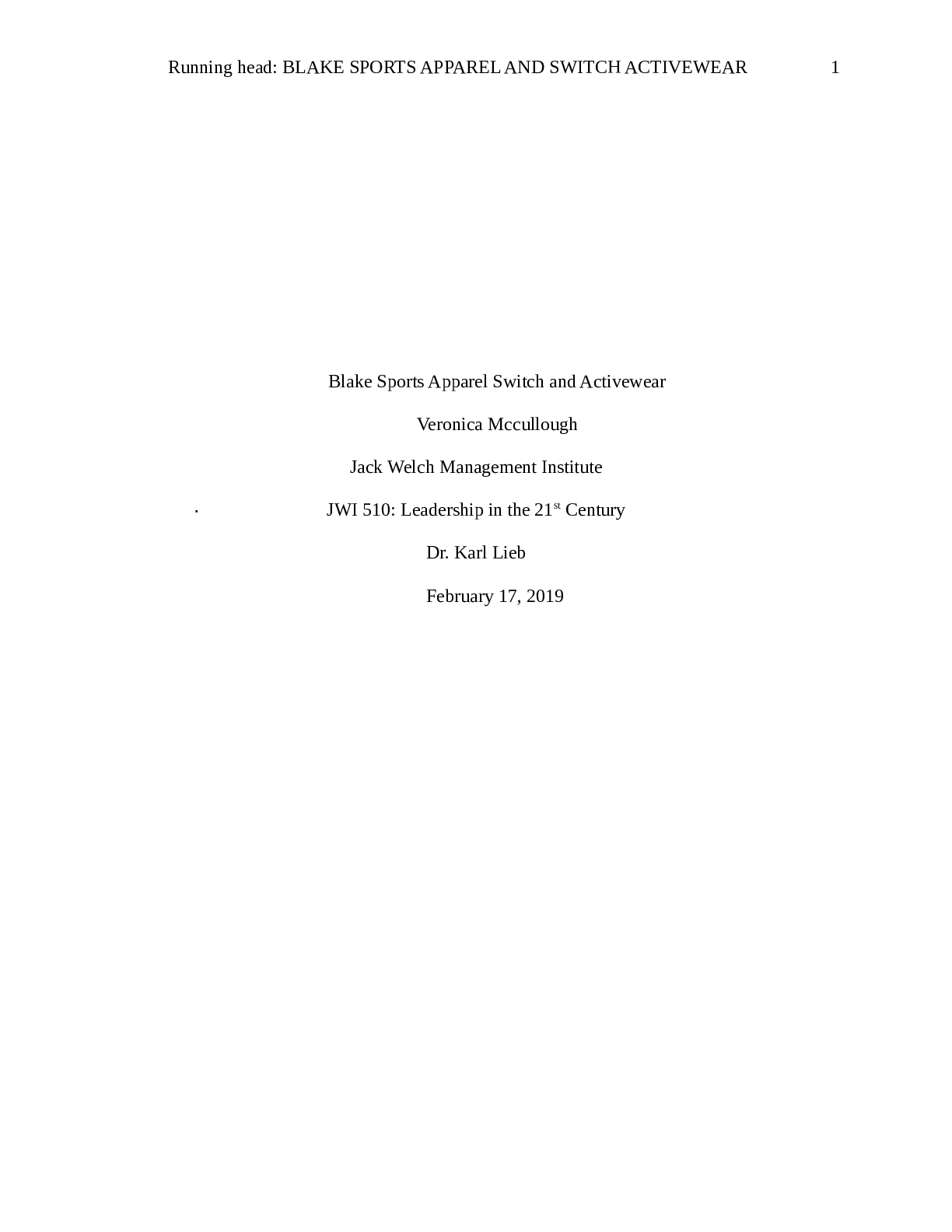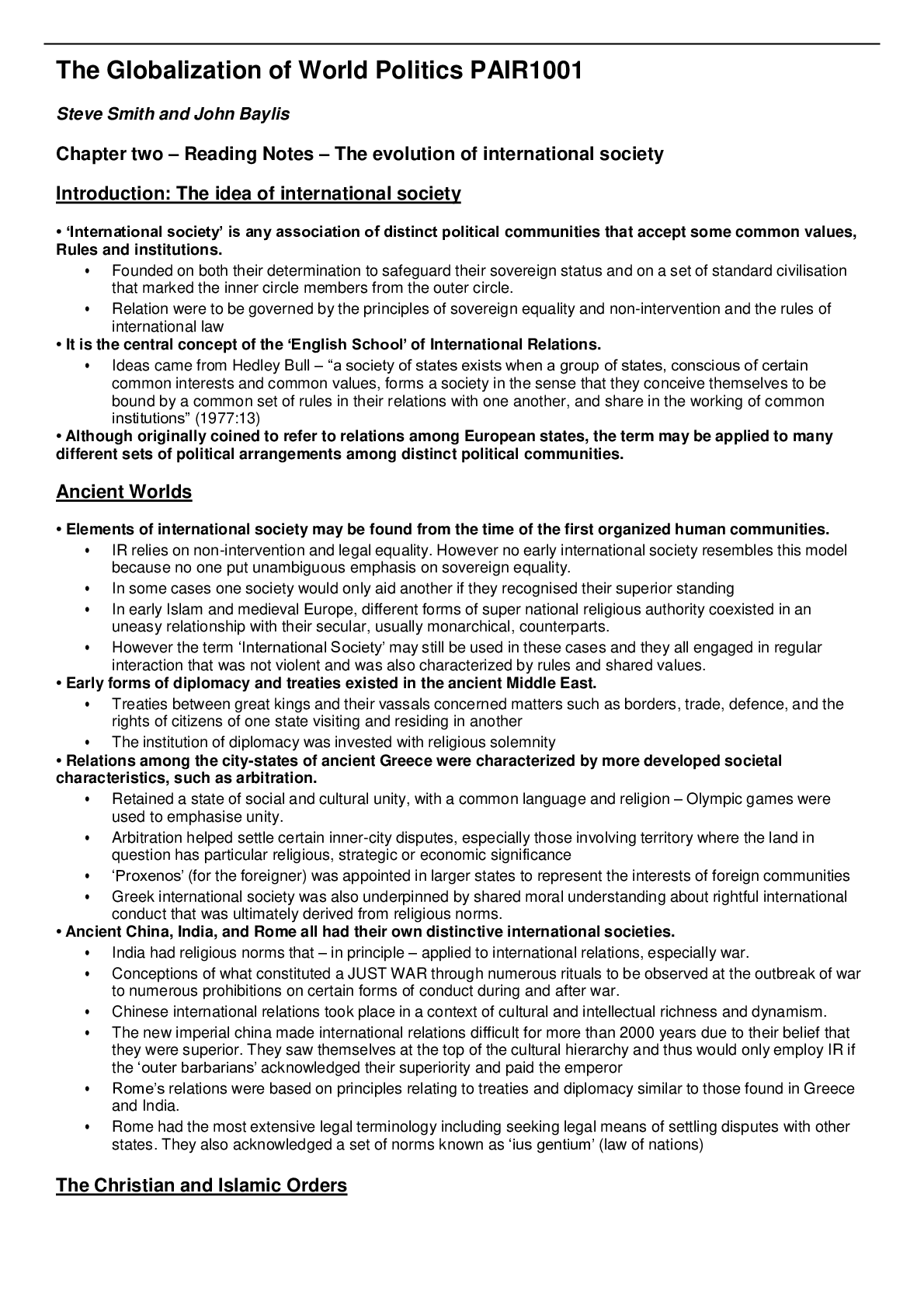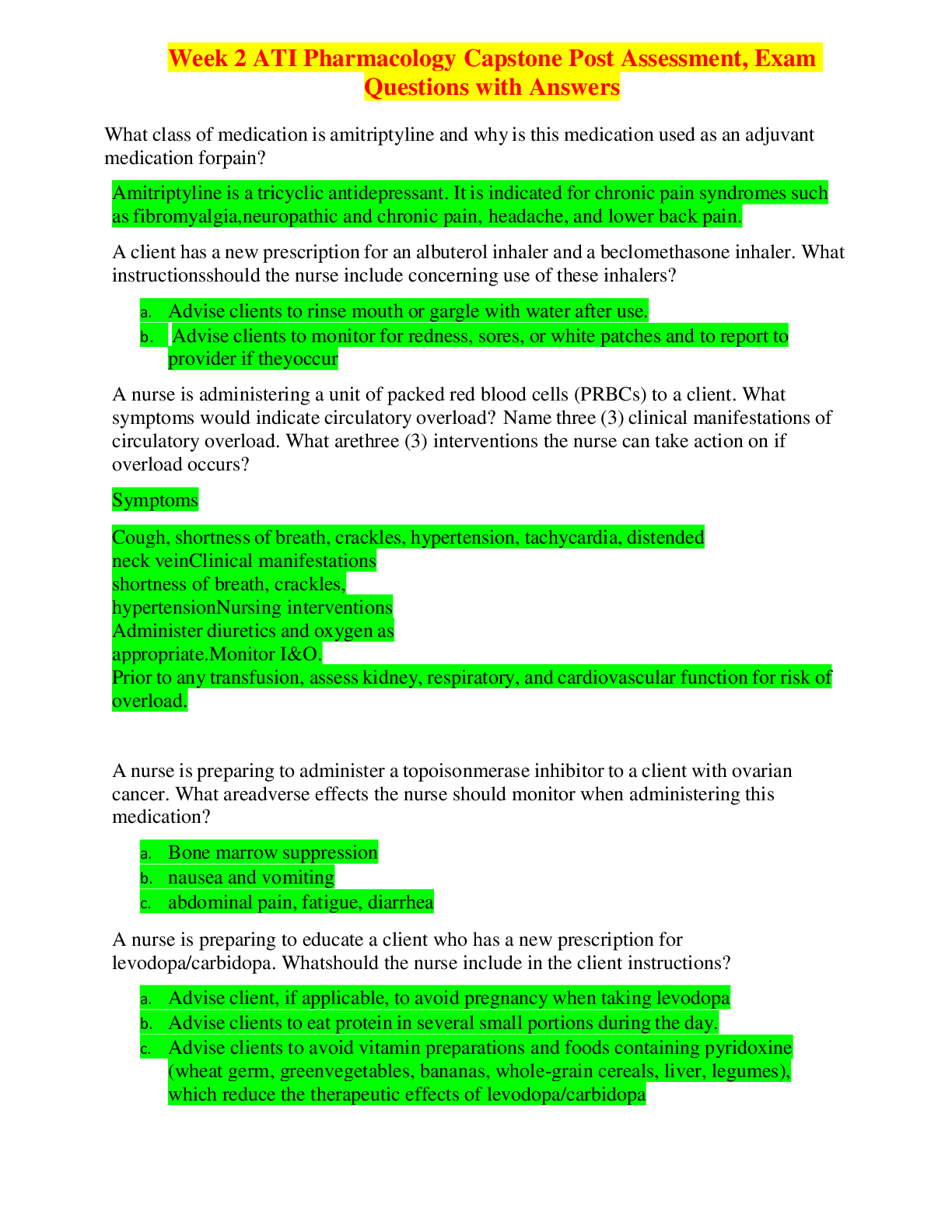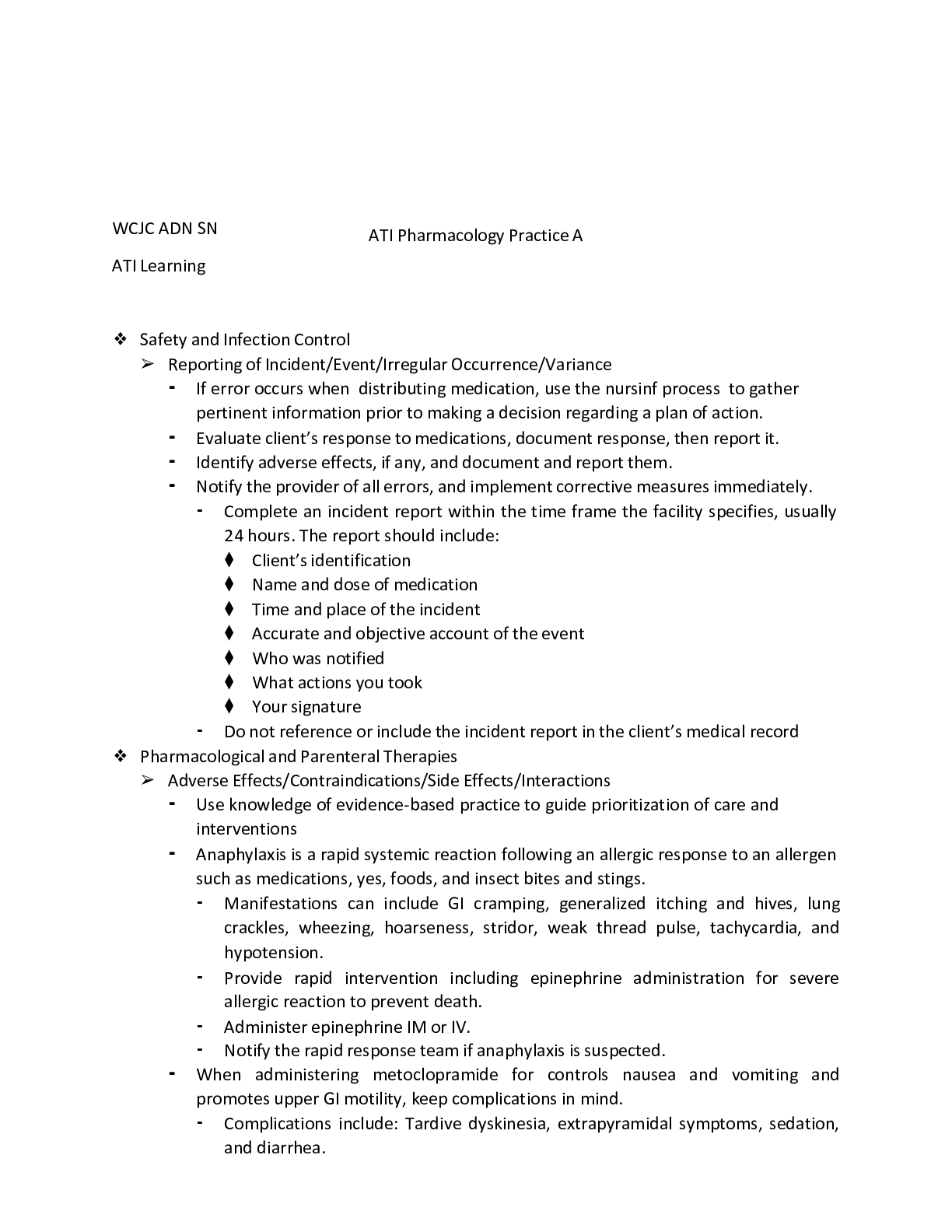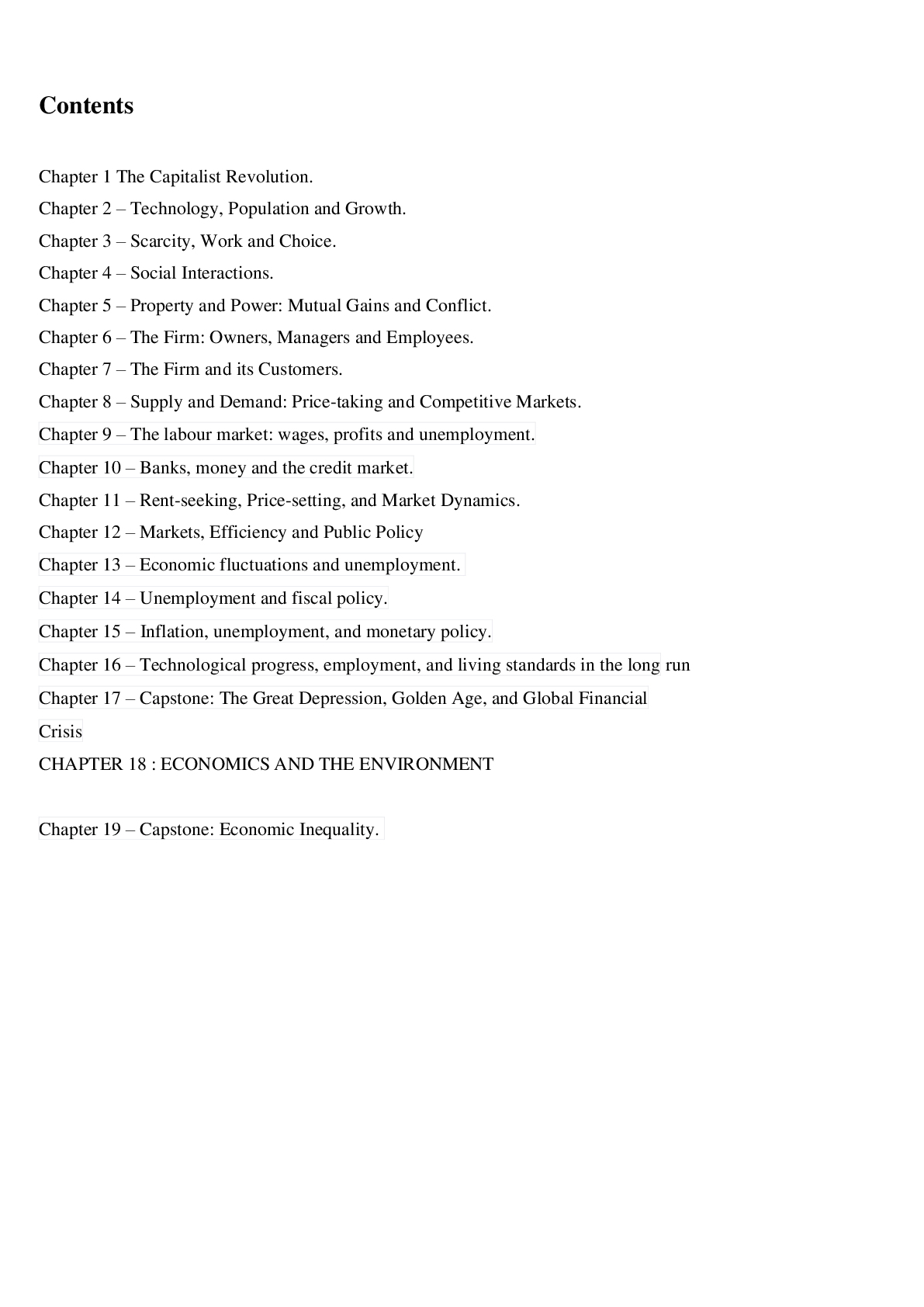
Georgia Institute Of Technology MGT 6203block-v1_GTx+MGT6203x+2T2020+type@open assessment +block
$ 11

PMT 252 252 Module 7 test results | Defense Acquisition University
$ 5

AHIP STUDY GUIDE 2022/ 2023 MODULE 1 TO 5
$ 10

PDF(eBook) (EPUB) When Reproduction meets Ageing ,By Nolwenn Bühler,1e
$ 25

66 Y/O FEMALE I HUMAN CASE WEEK #9 | REASON FOR ENCOUNTER BACK PAIN | LOCATION OUTPATIENT OR PRIMARY CARE CLINIC WITH LAB AND IMAGING ACCESS.
$ 17
.png)
Pearson Edexcel Level 3 GCE 8BN0/02 Biology A (Salters Nuffield) Advanced Subsidiary PAPER 2: Development, Plants and the Environment Qp 2021
$ 8.5

CLN4U Canadian and International Law |Unit 7-International Criminal Law. All Answers Provided
$ 7

Business management
$ 25

ATI CAPSTONE PHARMACOLOGY 1
$ 9

eBook [PDF] The Practice of Generalist Social Work 4th Edition By Julie Birkenmaier & Marla Berg-Weger
$ 25
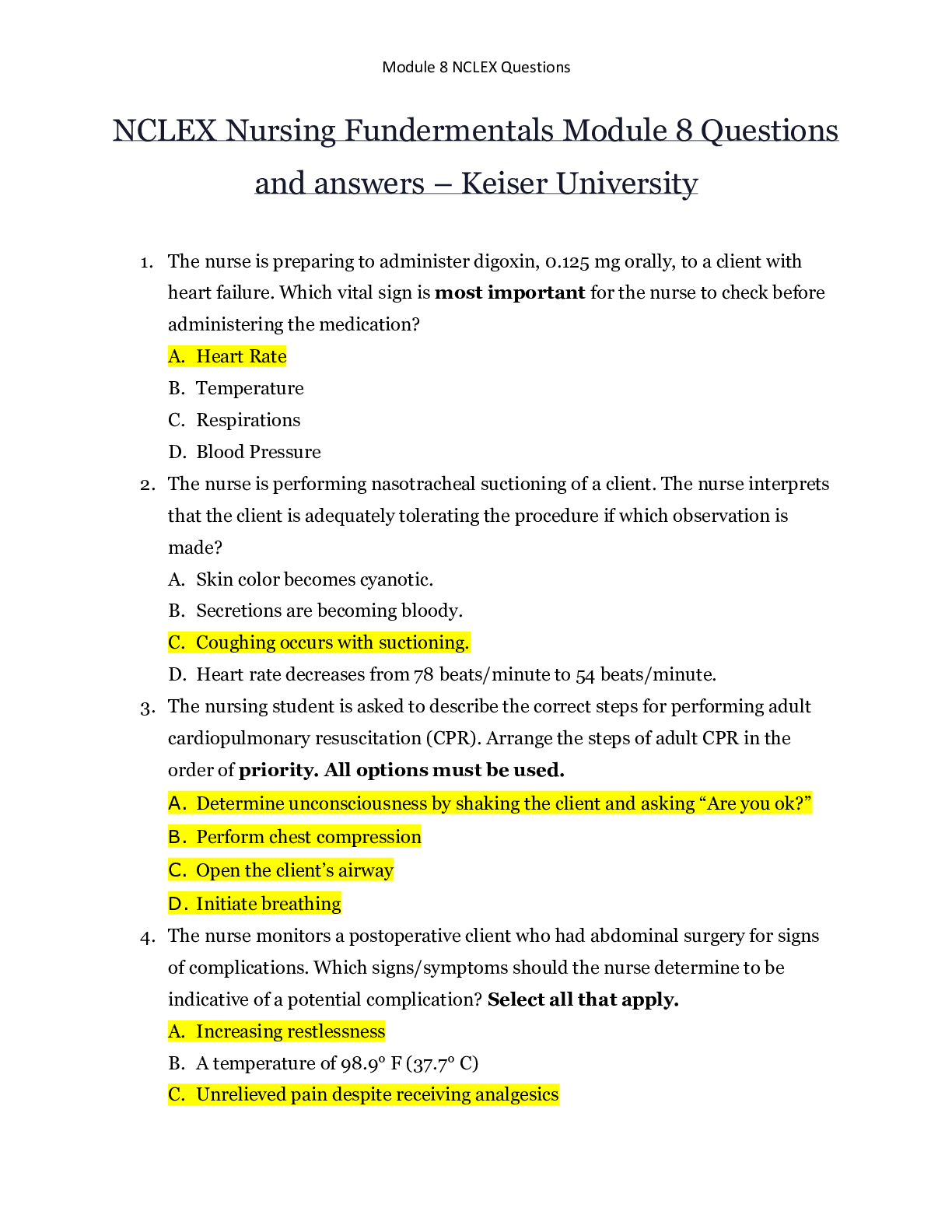
NCLEX Nursing Fundermentals Module 8 Questions and answers – Keiser University | NCLEX Nursing Fundermentals Module 8 Questions and answers
$ 12.5

How Does the Luxury Brands Marketing Activity Relate To Consumer Group Motivation in the First-Tier Cities. Graded A
$ 17

old-exams-mathematics-and-data-analysis-for-e-be-exam-questions-and-answers
$ 11.5
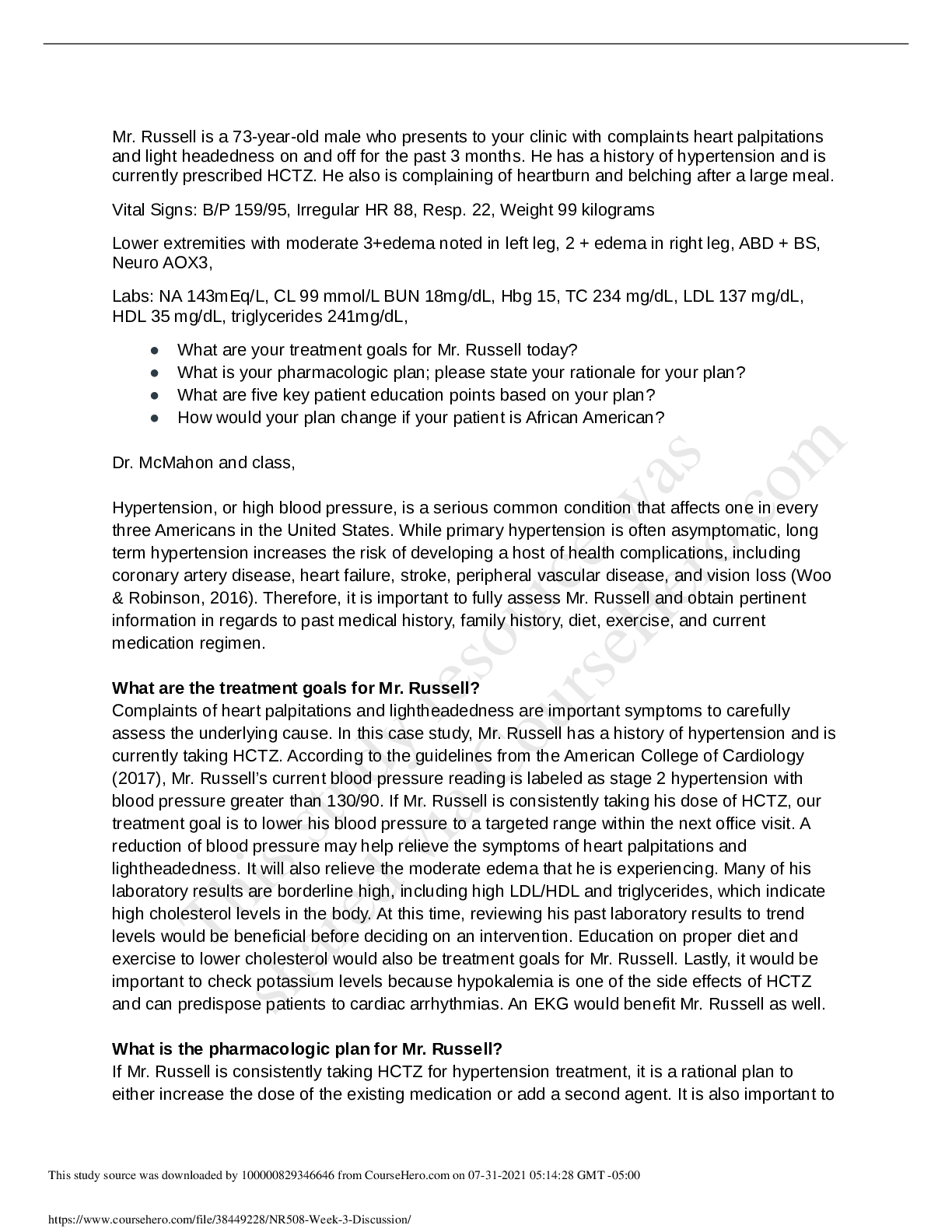
NR508 Week 3 Discussion
$ 7
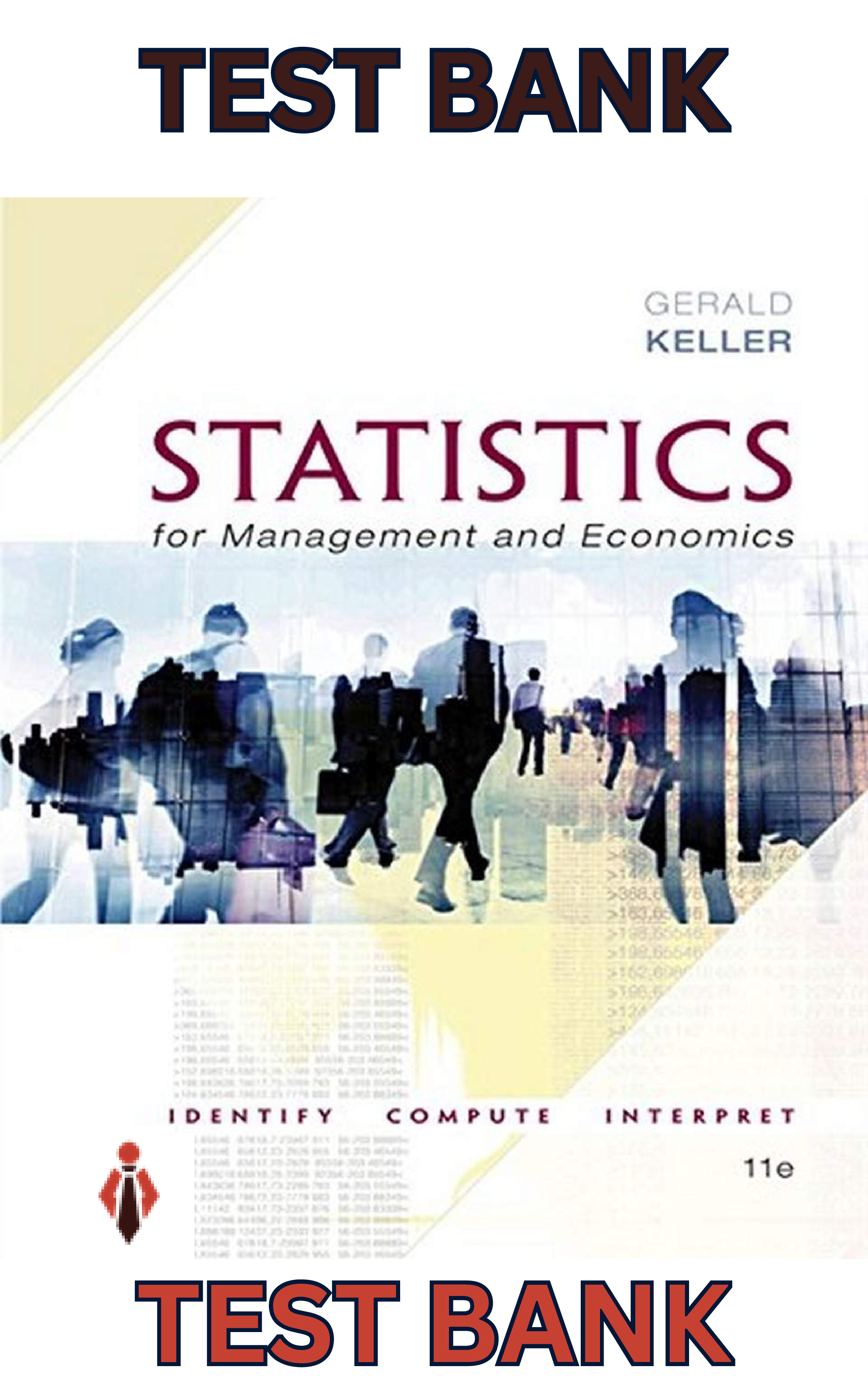
Test Bank - Statistics for Management and Economics 11th Edition by Gerald Keller - Complete, Elaborated and Latest Test Bank. ALL Chapters (1-23) Included and Updated.
$ 25
.png)
FULL-TEXT: Leadership & Management in Nursing NCLEX Practice Quiz (80 Questions and Answers provided with explanations) UPDATED ON NOVEMBER 8, 2021 BSN, R.N.
$ 13

D489 ITAS 6320 Cybersecurity Management FA (Qns & Ans) 2025 WGU
$ 11

ANCC-PMHNP Board Certification Complete CBT Guide 2024
$ 13
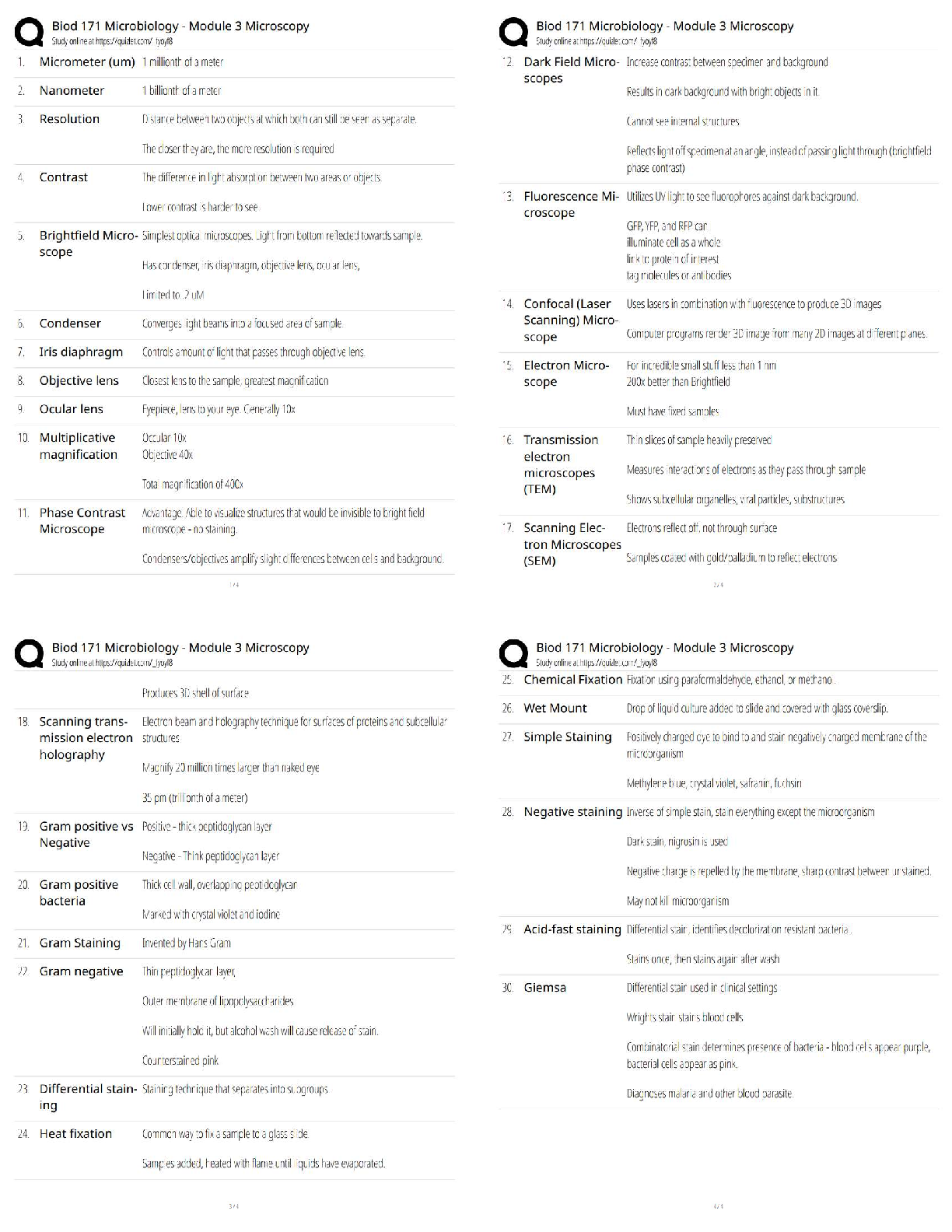
BIOD 171 Microbiology Module 3 Microscopy / Score 100% / New Version / 2025 Update / Study Guide & Test Bank
$ 10.5

Reconstruction Era Begins. Notes and Presentation (50 Slides)
$ 5

Summary Full Notes for Unit 3 Controlled Assessment - WJEC Applied Diploma in Criminology
$ 15
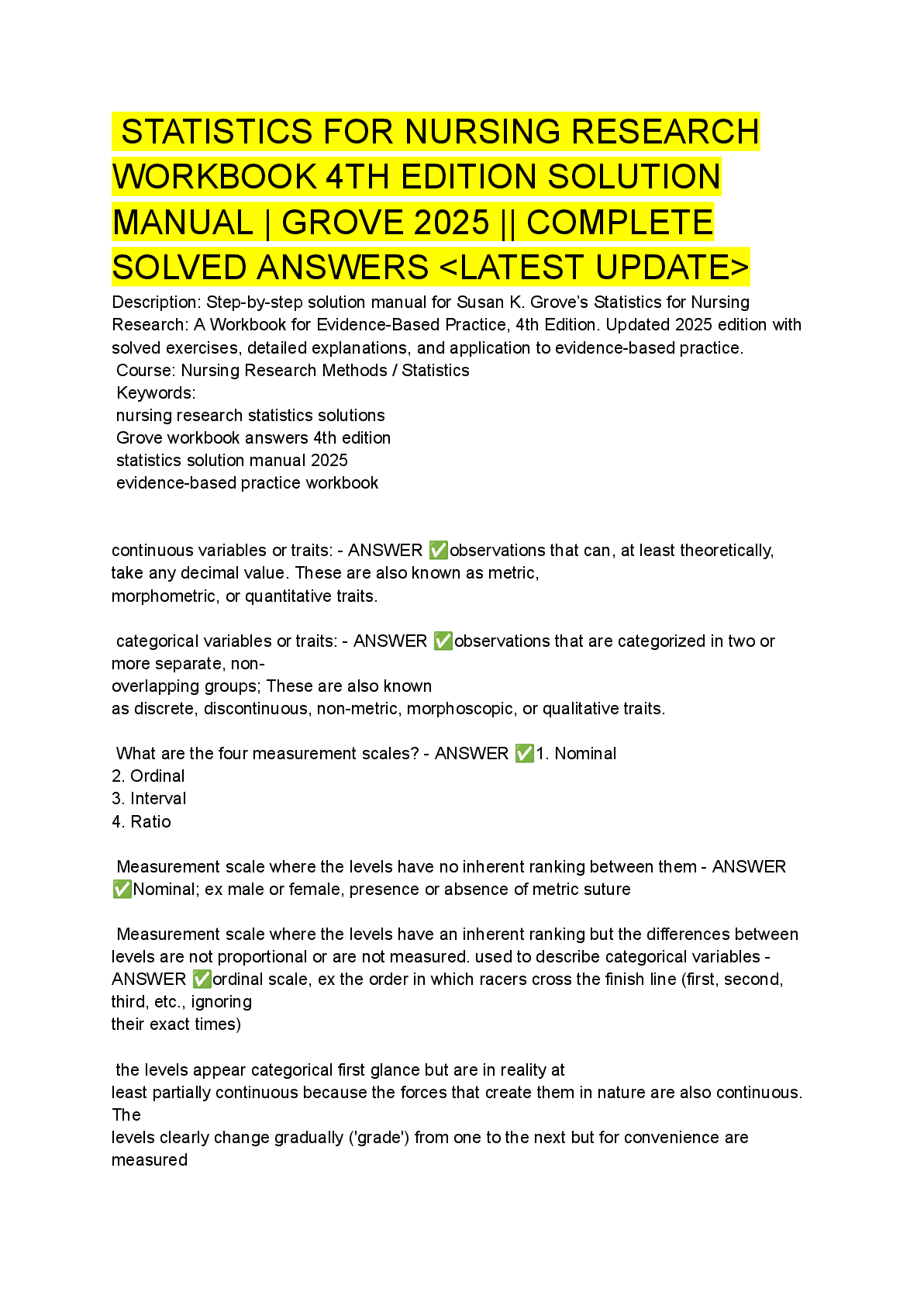
STATISTICS FOR NURSING RESEARCH WORKBOOK 4TH EDITION SOLUTION MANUAL | GROVE 2025 || COMPLETE SOLVED ANSWERS <LATEST UPDATE>
$ 8

HESI MED-SURG Practice Questions & Key Terms, Questions with accurate answers, Rated A+. 2022/2023
$ 12
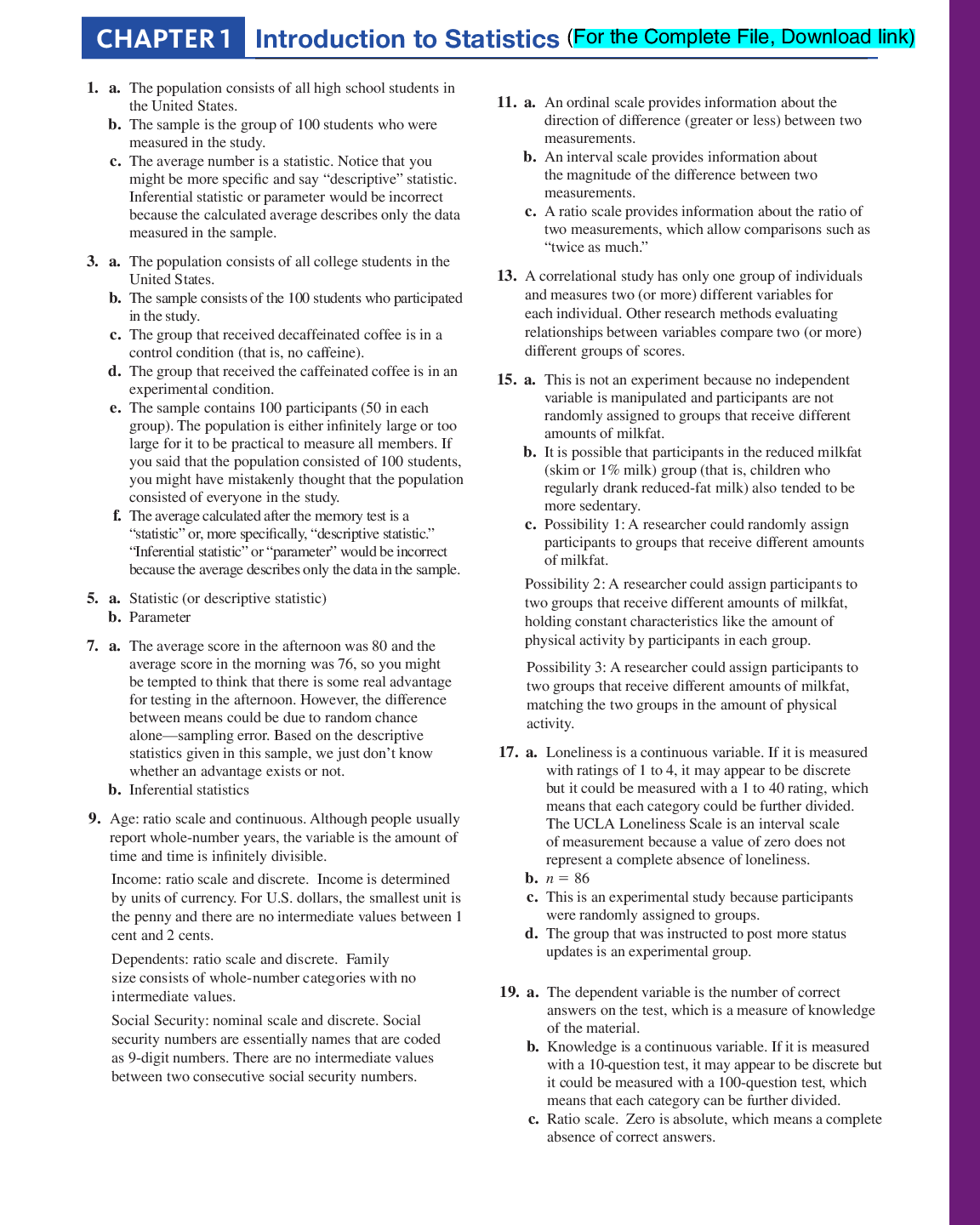
Essentials of Statistics for the Behavioral Sciences, 10e Frederick Gravetter, Larry Wallnau, Lori-Ann Forzano, James Witnauer (Solution Manual)
$ 25

NCLEX-RN QUESTIONS AND ANSWERS COMPLETE GUIDE SOLUTIONS VERIFIED AND GRADED A+
$ 15

Organizational Psychology Notes, Question and Answers presentation. est Content (439 Pages)
$ 8

HESI RN PHARMACOLGY EXAM 2 NGN QUESTIONS WITH ANSWER KEY 2025
$ 15

Introduction to Sociology Milestone 5 Answer Sophia Course, Complete Answers.
$ 8.5

AHIP STUDY GUIDE Questions and Answers (20222023)(Verified Answers)
$ 11

BUSI2025 International Business 1 Case Analysis No. 4 The end of Australia’s car industry
$ 6

Grand Canyon UniversityMGT 434 management performance cycle
$ 9

Sophia College Readiness Milestone 3,
$ 18.5

SOCS 185N Week 5 Assignment: Pre-Writing Map for the You Decide Census Paper
$ 9

Exam fX – Insurance Exam Questions and Answers (Solved)
$ 5

Clinical Pathophysiology Made Ridiculously Simple 1st Edition
$ 18

Summer MGT 6203 FINAL EXAM PART1 – THEORY Questions And Answers all verified 2021
$ 9

AP Psychology Unit 2: Research Methods: Thinking Critically with Psychological Science
$ 3.5
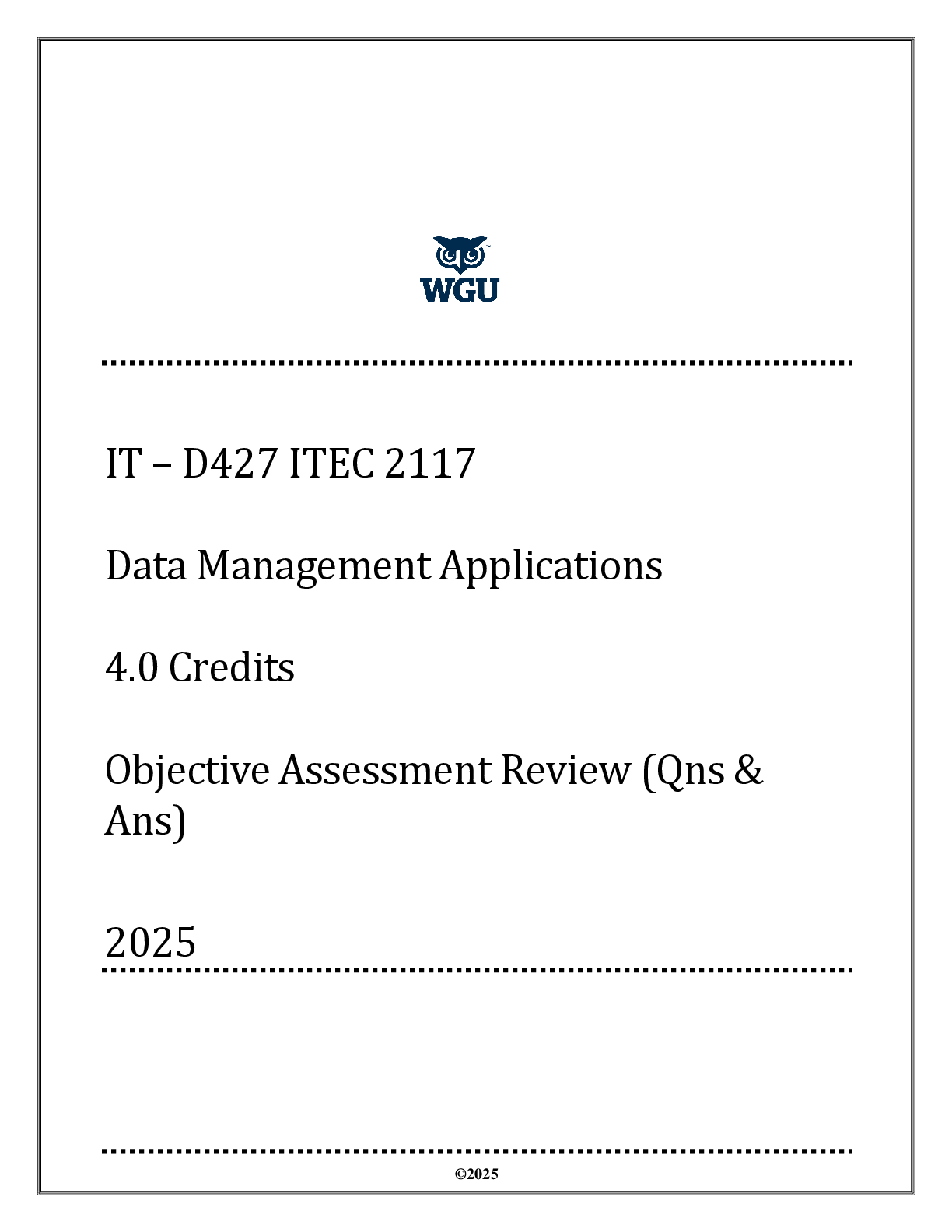
IT-ITEC 2117(D427) Data Management Applications Latest OA Guide 2025
$ 14

Adolescent Development Family Relationships and Peer Influences Qs&As 2 Key Principles Involved in the Family Systems
$ 10
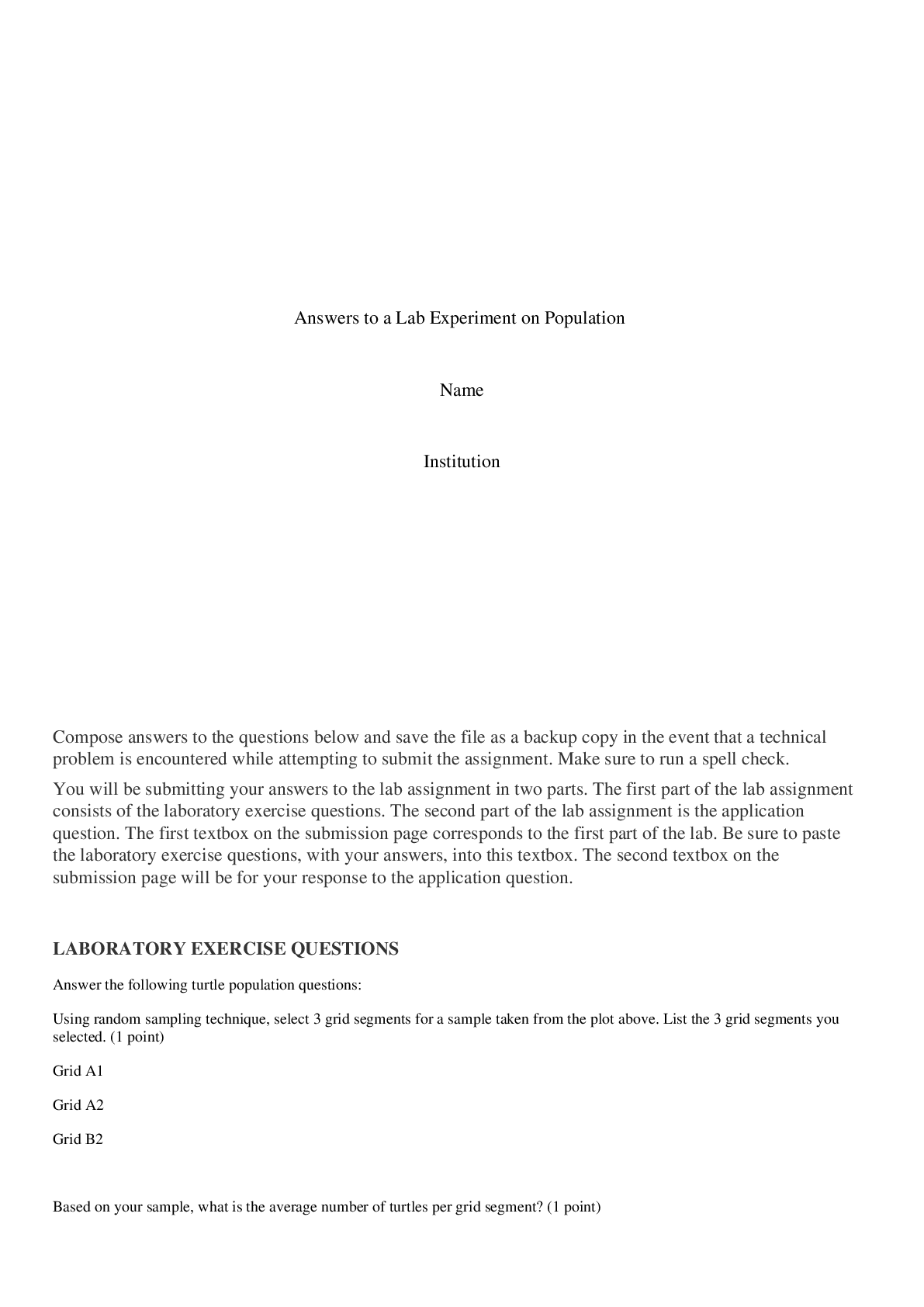
GEOGRAPHY ANSWERS TO LAB EXPERIMENT ON POPULATION GROWTH
$ 8.5

OCR GCSE Combined Science B Twenty First Century Science J260/07: Physics (Higher Tier) General Certificate of Secondary Education Mark Scheme for June 2022
$ 5.5

i-Human Case Study Evita Alonso, 48yrs Old Female Hispanic American Female CC: Abdominal Pain 3 DIFFERENT VERSIONS OF THE ANSWER EXPERT FEEDBACK (SOLUTIONS) NRNP 6531 WEEK 7 IHUMAN
$ 18.5
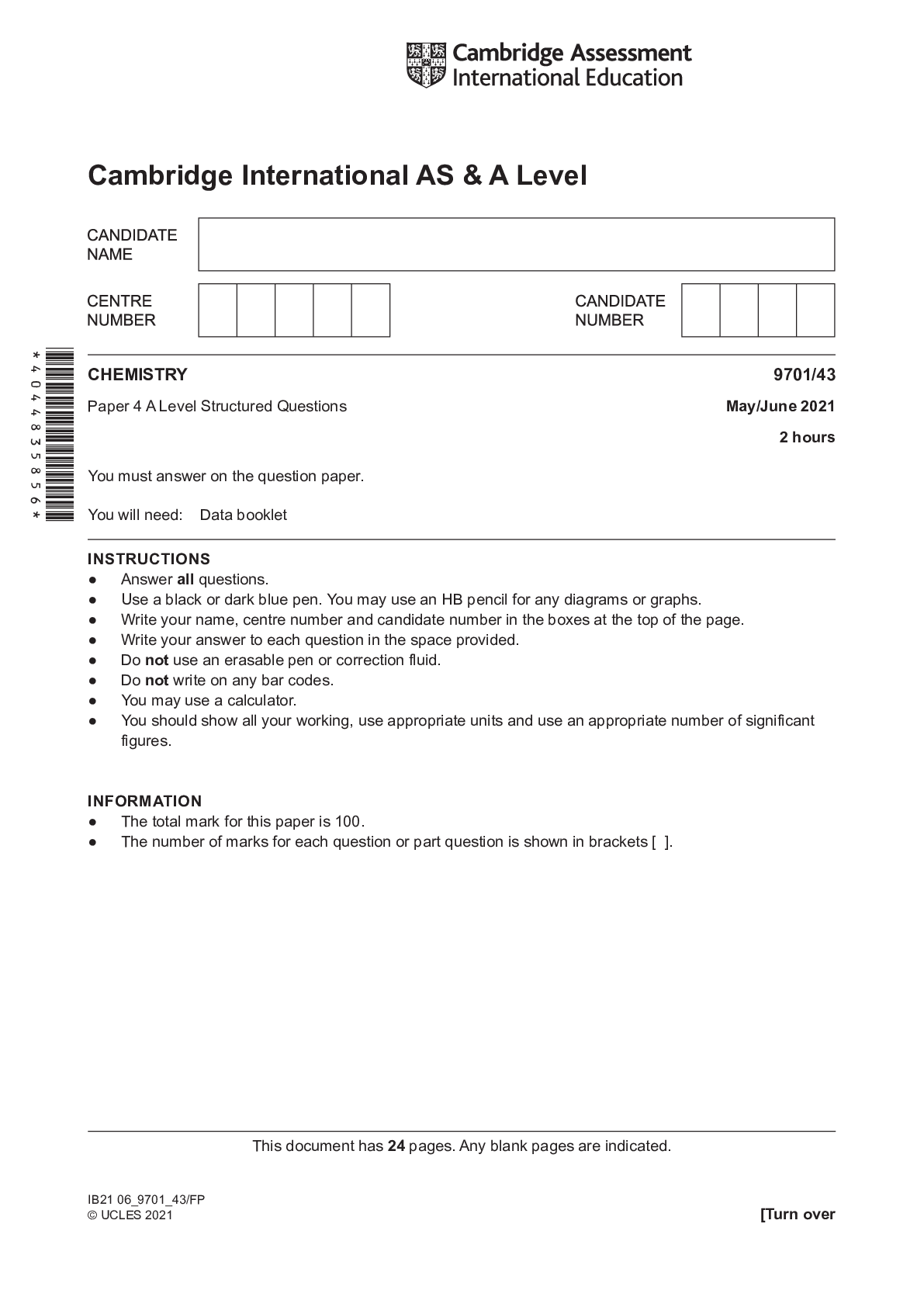
Cambridge International AS & A Level_Chemistry_9701/43 Question Paper_May/June 2021 | Paper 4 A Level Structured Questions
$ 7.5

NR 511 – FINAL EXAM (LATEST)
